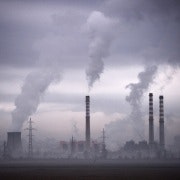NSW holds a match to Gillard's gas dreams
It's a battleground within a battleground and the troops from both sides are increasing their rate of fire.
By general consensus, New South Wales is where the fates of Julia Gillard (or whoever is leading the Labor Party on September 14) and Tony Abbott will be decided. It contains half of the 20 most marginal federal seats in the country.
By general consensus, too, the New South Welsh are as annoyed as anyone in the country over energy prices, which Gillard described as "the new petrol” when she bought in to the electricity debate last August.
In one of those coincidences that make pollies wince, the New South Wales independent pricing regulator will be making determinations about both electricity and gas prices for the state for the next three years in May.
And it is generally agreed in the energy world that where the prices must go, given the conditions in the market, is up.
Just how far up they will rise is the question.
Queensland Premier Campbell Newman and Treasurer Tim Nicholls set a political benchmark last week when that state's regulator, the Queensland Competition Authority, produced a draft determination for 2013-14 for power bill increases of between 13 per cent (rural) and 22 per cent (the populated south-eastern corner).
Newman and Nicholls professed themselves "shocked” by the decision.
"We can't have double digit increases,” Newman said. "We are determined to find a way to ensure that people don't get hit with double digit increases.”
At roughly the same time, residents of the Hunter Valley were waking to a Newcastle Herald headline that read When gas bills soar, thank your premier, plastered over an op-ed piece from Rick Wilkinson, chief operating officer, eastern Australia, of the upstream petroleum lobby group.
The Australian Petroleum Production & Exploration Association, which is holding its high-profile annual conference – it habitually attracts 40 journalists and 3,000 delegates these days – in Brisbane at the end of May, is seriously displeased with Barry O'Farrell's government over a sudden veer in its approach to coal seam gas development.
As Wilkinson puts it, late last year the New South Wales government opted, after 15 months of consultation, for a CSG policy that would make the gas industry one of the most regulated in the country but at least gave explorers and producers a regime that would enable them to get on with exploiting the state's gas resources.
Then this month O'Farrell shifted the goal posts with the introduction of blanket no-go zones. As APPEA sees it, New South Wales has now set a course for higher energy prices.
"A gas supply crisis is looming,” Wilkinson wrote, for a state now importing 95 per cent of its gas needs from South Australia, Queensland and Victoria under contracts that start running out next year.
Where new domestic contract prices are heading has also been made clear by Santos, one of the major suppliers.
Chief executive David Knox, who is also the current APPEA chairman, in releasing the company's results last week, said that wholesale gas prices in eastern Australia have already started to move towards the upper end of the $6 to $9 per gigajoule range forecast for deliveries in 2015-16.
"That price is here, now,” he told reporters.
Not surprisingly, the large users have leapt to remake their case for governments to do something about the situation. The Perth-based DomGas Alliance says the domestic gas market "doesn't work any more" and accuses gas producers of "over-contracting” to LNG buyers overseas, committing more in export deliveries than they currently have available to produce.
As the producers retort, the core issue is price – the resource is there, the manufacturers just want someone to tinker with what they have to pay.
Inevitably, this issue drags in federal as well as state politicians.
Paul Howes, national secretary of of the Australian Workers Union, contributor to the downfall of Kevin Rudd and Gillard's professed mainstay, is calling for "the removal of red tape and barriers blocking development of gas reserves” and for "a look at measures to secure long-term domestic supplies.”
And the slipperiness of the slope on which Gillard leapt when she plunged into the energy price debate last August is illustrated by a call from the head of the New South Wales Business Chamber, Stephen Cartwright, for "national leadership” to "bring energy prices back under control” – a task he describes as "an absolute priority.”
The hard ground on which the politicians are landing as they try to dodge the rock of gas prices is that, unlike electricity, the industry is wholly in private hands.
The Queensland and New South Wales governments own most of the electricity business in their states. They can play with all sorts of levers.
Treasurer Nicholls is already canvassing cutting the dividends the networks pay his government in an effort to avoid the double-digit doom of new power price rises – and he and Newman have directed the businesses to slash more than $2 billion from their capex and opex for the next three years.
In the gas sector, however, political interference, as has been demonstrated here and overseas many times, eventually just turns off investors.
The likelihood in New South Wales is not that the gas will run out for more than million household and business customers, but that the energy retailers will pay whatever it costs to secure supplies and pass on the price.
Those prices will ripple across the Murray and Tweed river boundaries and impact on more than the already distressed manufacturers of New South Wales.
Meanwhile, an "interesting” side-effect, in the Confucian sense, for New South Wales is what this situation will mean in terms of electricity demand.
At what point do gas customers switch to the other option?
This has implications for the security and availability of power down the track.













